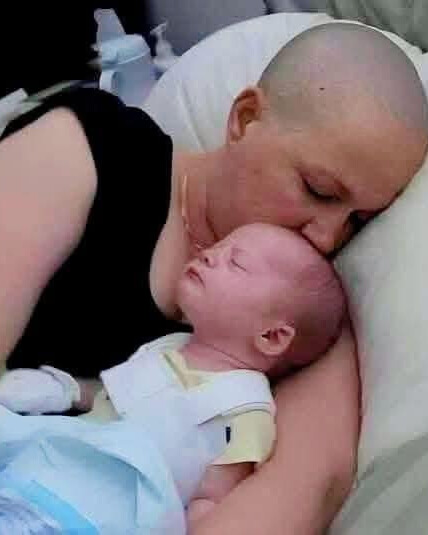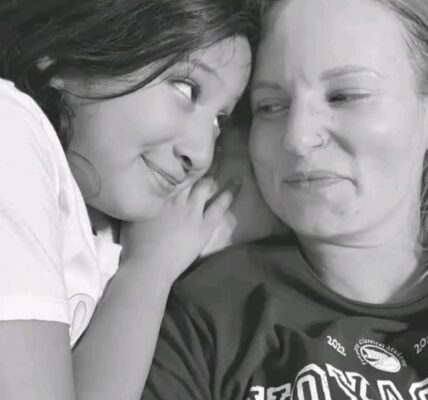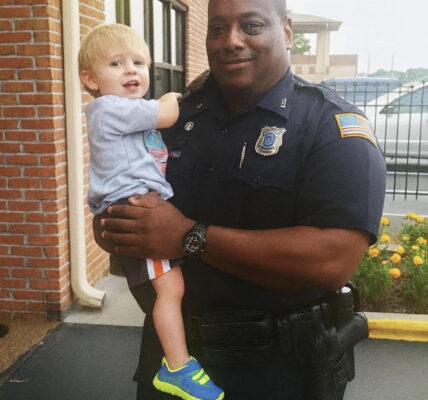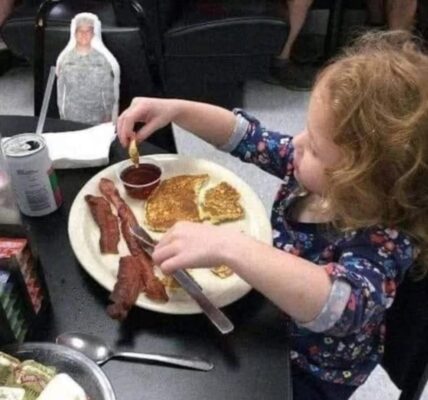People often speak about abortion as a necessary medical procedure—especially when a mother’s life is at risk. And while there are undeniably heartbreaking circumstances where it may be the only option, Sarah Hull’s story reminds us that life, hope, and miracles don’t always follow statistics or predictions.
Ten years ago, Sarah was finally living the dream she had prayed and fought so long for—she was pregnant. After years of infertility, endless tears, doctor visits, and emotional roller coasters, that little plus sign on the test felt like a whisper from heaven. She and her partner were overjoyed. Every ultrasound, every flutter, every milestone brought new excitement. It wasn’t just a pregnancy; it was a long-awaited miracle.
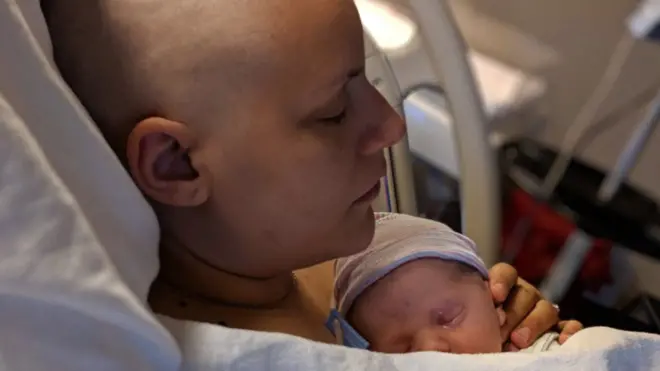
But then, halfway through—at just 20 weeks—everything changed.
Sarah was diagnosed with a rare and aggressive form of cancer. It was already growing fast, pressing dangerously against her airway. Breathing had become difficult. Time was not on her side.
When the first oncologist reviewed her scans, his words cut through the room like a scalpel.
“We need to talk about terminating the pregnancy.”
Sarah froze. After everything she had been through to get to this moment, the idea of ending the life growing inside her was unthinkable. She sat in stunned silence, her hand instinctively resting on her belly. That child wasn’t just tissue or a medical complication. That child was hers. She looked the doctor in the eyes and, with quiet resolve, told him: “No. I’d rather die than take her life.”
Still, the warnings came.
She was referred to another specialist—a man with cold eyes and a colder tone. He didn’t mince words. If she refused to terminate, he said, the baby would likely suffer catastrophic complications. Organ damage. Brain issues. The likelihood of a live, healthy birth was slim. And then, as if to soften the blow with clinical detachment, he added,
“Well… the baby will probably spontaneously abort anyway.”
Sarah left that office with tears burning in her eyes but her heart set like stone. She would fight—for herself, yes, but more importantly, for her daughter.
She sought out new doctors, doctors who would respect her decision. She built a medical team that believed in treatment and preservation, not choosing one life over the other. It wasn’t easy—there were nights when she couldn’t sleep from the pain or fear. Days when she questioned her strength. But through chemo, procedures, hospital stays, and breathless nights, she carried her baby.
At 34 weeks—six weeks early, but strong enough—Sarah delivered a beautiful, healthy baby girl.
She named her Hope.
Hope thrived. Against every grim prediction, she grew up without a single complication. Bright, spirited, and full of life, she became the living embodiment of resilience.
This May, Sarah celebrated two anniversaries. One marked 10 years since her cancer went into remission. The other? Her daughter’s 10th birthday.
Ten years cancer-free.
Ten years of bedtime stories, scraped knees, dance recitals, and belly laughs.
Ten years of being a mother when the world told her she wouldn’t be.
Ten years of living proof that sometimes, doctors don’t know everything.
Sarah doesn’t tell her story to judge others. She knows every situation is different, and every family must walk their own road. But for her, the choice to fight for both lives was never a question. And every time her daughter runs into her arms, she is reminded of why she said no.
Because miracles sometimes look like stubborn mothers, terrified but determined, choosing to hope when no one else does.
And miracles sometimes grow up to be 10-year-old girls who laugh in the sunlight, defying every odd ever spoken against them.
